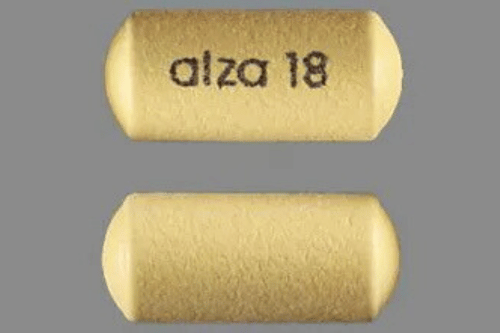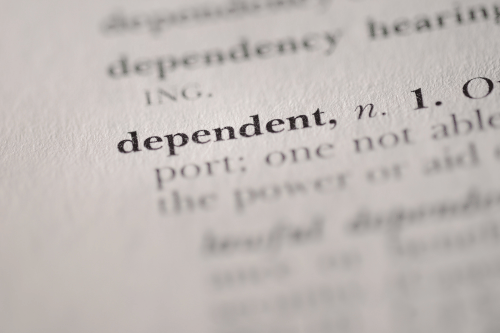Concerta Withdrawal: Understanding Symptoms, Timelines, and Treatment Options
Concerta, a prescription medication commonly used to treat attention deficit hyperactivity disorder (ADHD), can be highly effective when used as prescribed. However, because it is a stimulant and a Schedule II controlled substance, it carries a significant risk of dependence and abuse. For individuals who misuse the drug or take it for extended periods, stopping can lead to a range of withdrawal symptoms that can be both physically and mentally challenging.
Understanding the symptoms, timeline, and treatment options for Concerta withdrawal is crucial for individuals seeking recovery from dependence on this powerful medication. Concerta detox, under medical supervision, is essential to manage withdrawal symptoms effectively and may involve professional treatment programs that offer both medication and therapeutic support.
What Is Concerta?

Concerta is the brand name for a time-released formulation of methylphenidate, a stimulant that affects the brain’s central nervous system. It works by increasing the levels of dopamine and norepinephrine, neurotransmitters that play key roles in regulating attention, focus, and impulse control. While Concerta is most often prescribed for individuals with ADHD, it is also used to manage narcolepsy. Because of its stimulant effects, Concerta can lead to enhanced energy and concentration, making it prone to misuse by people looking for performance enhancement, increased productivity, or euphoria.
Like other prescription stimulants, Concerta is considered a Schedule II controlled substance by the Drug Enforcement Administration (DEA), meaning it has a high potential for abuse and dependence. Prolonged use of stimulant medications like Concerta can lead to physical dependence, and once the drug is discontinued, withdrawal symptoms can occur.
What Causes Concerta Withdrawal?
Concerta withdrawal occurs when someone stops taking the drug after becoming physically dependent on it. Over time, the brain becomes reliant on the increased dopamine and norepinephrine levels induced by Concerta. When the drug is suddenly removed from the system, the brain struggles to compensate for the loss of these neurotransmitters, leading to stimulant withdrawal symptoms such as severe fatigue, depression, and lack of energy.
Dependence on Concerta can develop even when the medication is taken as prescribed, but the risk is higher in individuals who misuse the drug by taking larger doses or using it more frequently than prescribed. People who abuse Concerta may crush the extended-release tablet and snort or inject it to experience a more immediate and intense high, which increases their risk of developing drug dependence and experiencing withdrawal.
Common Concerta Withdrawal Symptoms

Withdrawal symptoms from Concerta can be both physical and psychological. The severity of the symptoms depends on several factors, including the individual’s history of use, dosage, and whether the drug was stopped suddenly or tapered off gradually. Here are some of the most common Concerta withdrawal symptoms:
Fatigue and Low Energy: One of the hallmark signs of Concerta withdrawal is extreme fatigue. After the stimulating effects of the drug wear off, individuals often feel exhausted and may have trouble staying awake.
Depression and Severe Depression: Withdrawal from Concerta can lead to feelings of sadness, hopelessness, and in some cases, severe depression. This can be especially dangerous for individuals with a history of mood disorders.
Mood Swings and Irritability: Emotional instability is common during withdrawal. Individuals may experience sudden mood changes, irritability, and increased sensitivity to stress.
Difficulty Concentrating: One of the primary symptoms of ADHD is difficulty focusing, and without the effects of Concerta, this symptom often returns or worsens during withdrawal.
Sleep Disturbances: Insomnia or oversleeping are common during the withdrawal process. Individuals may have trouble falling asleep, staying asleep, or may sleep excessively but still feel tired.
Panic Attacks and Anxiety: Many people report heightened anxiety during withdrawal, and in some cases, panic attacks may occur.
Suicidal Thoughts: In severe cases, individuals going through withdrawal may experience suicidal thoughts or feelings of worthlessness, particularly if they are also dealing with severe depression.
It is crucial to seek immediate medical attention if severe withdrawal symptoms, such as suicidal thoughts or severe depression, arise. Understanding the Concerta withdrawal symptoms timeline can help individuals anticipate and manage these symptoms, which typically begin within a few days of stopping the drug and can last for several weeks.
The Concerta Withdrawal Timeline
The timeline for Concerta withdrawal can vary from person to person based on how long they’ve been using the drug, the dosage, and whether they abruptly stop or gradually taper off. Here’s a general breakdown of what to expect during Concerta withdrawal:
First 24-48 Hours (Concerta Crash): The initial phase of withdrawal, often called the “Concerta crash,” typically begins within the first 24 to 48 hours after the last dose. During this time, individuals may experience extreme fatigue, irritability, and mood swings. They may also feel depressed or anxious and have difficulty concentrating.
First Week: Over the next few days, withdrawal symptoms tend to peak. Fatigue, mood disturbances, and sleep problems are often at their worst during this period. Some individuals also experience intense cravings for the drug as their brain seeks to restore its previous chemical balance.
Weeks Two to Four: As the body continues to adjust to life without Concerta, some of the more acute symptoms, such as mood swings and severe depression, may begin to subside. However, other symptoms like difficulty concentrating and fatigue may linger. For some, the withdrawal timeline extends beyond the first two weeks, with symptoms lasting up to a month or longer.
Post-Acute Withdrawal Syndrome (PAWS): In some cases, individuals may experience Post-Acute Withdrawal Syndrome (PAWS), where symptoms such as anxiety, depression, and difficulty focusing persist for months after stopping the drug. PAWS is more common in individuals with a history of substance abuse or long-term use of Concerta at high doses.
Factors Affecting Concerta Withdrawal
Several factors influence how severe Concerta withdrawal will be and how long it will last. These factors include:
Length of Use: Individuals who have been using Concerta for a long period are more likely to experience severe withdrawal symptoms. Long-term use increases the likelihood of physical dependence, meaning the body has become reliant on the drug to function normally.
Dosage: Higher doses of Concerta increase the risk of experiencing more intense withdrawal symptoms. People who take larger doses of the drug, particularly if they abuse it, are more likely to face significant challenges during withdrawal.
Tapering vs. Abrupt Discontinuation: Tapering off Concerta under medical supervision can help minimize withdrawal symptoms by allowing the brain time to adjust to decreasing levels of the drug. Stopping the drug abruptly, on the other hand, can lead to a sudden and severe onset of symptoms.
Concerta Addiction and Drug Abuse

Concerta addiction and drug abuse are serious concerns due to the medication’s high potential for misuse and dependence. As a Schedule II controlled substance, Concerta has a legitimate medical purpose but can be abused for its stimulant effects. Misusing Concerta can lead to physical dependence, withdrawal syndrome, and severe withdrawal symptoms.
According to the Substance Abuse and Mental Health Services Administration (SAMHSA), in 2017, more than 900,000 people misused methylphenidate medications, including Concerta, in the United States. Concerta addiction can occur when individuals take the medication in larger doses or more frequently than prescribed, or when they use it without a prescription.
Signs of Concerta addiction and drug abuse include:
Taking Concerta in larger doses or more frequently than prescribed
Using Concerta without a prescription
Experiencing withdrawal symptoms when trying to stop or reduce Concerta use
Continuing to use Concerta despite negative consequences, such as relationship problems or work-related issues
Feeling a strong urge or craving to use Concerta
If you or someone you know is struggling with Concerta addiction or drug abuse, it’s essential to seek professional help from a mental health services provider or addiction treatment center. Early intervention can prevent the escalation of substance abuse and help individuals regain control over their lives.
Concerta Withdrawal and Co-Occurring Disorders
Concerta withdrawal can be more challenging for individuals with co-occurring disorders, such as mental health conditions or substance use disorders. Co-occurring disorders can increase the risk of severe withdrawal symptoms, including suicidal thoughts or behaviors.
Common co-occurring disorders with Concerta withdrawal include:
Attention Deficit Hyperactivity Disorder (ADHD)
Depression
Anxiety disorders
Substance use disorders, such as addiction to other stimulants or opioids
Bipolar disorder
When treating Concerta withdrawal, it’s essential to address co-occurring disorders simultaneously. A comprehensive treatment plan should include:
Medical detox to manage withdrawal symptoms
Medications to treat co-occurring disorders, such as antidepressants or anti-anxiety medications
Behavioral therapies, such as cognitive-behavioral therapy (CBT) or dialectical behavior therapy (DBT)
Support groups, such as 12-step programs or peer support groups
A mental health services provider or addiction treatment center can help develop a personalized treatment plan to address Concerta withdrawal and co-occurring disorders. This integrated approach ensures that all aspects of an individual’s health are considered, promoting a more successful and sustainable recovery.
Treatment Options for Concerta Withdrawal
Treating Concerta withdrawal typically requires a comprehensive approach that includes medical supervision, therapy, and support services. Here are some of the most effective treatment options for managing Concerta withdrawal:
While there are no FDA-approved medications specifically to treat stimulant withdrawal, behavioral therapy and therapeutic support can be beneficial for managing symptoms such as cravings and depression.
1. Medical Detox
Medical detox is often the first step in treating Concerta withdrawal, especially for individuals who have developed a significant dependence on the drug. During medical detox, individuals are monitored by healthcare professionals who can provide support and medications to manage severe withdrawal symptoms, such as depression, anxiety, or sleep disturbances. Detoxification in a medical setting ensures that any complications that arise can be addressed promptly and safely.
2. Therapy and Counseling
Behavioral therapies, such as cognitive-behavioral therapy (CBT), can be extremely effective in treating the psychological symptoms of withdrawal. CBT helps individuals identify and change negative thought patterns and behaviors associated with their addiction. Group therapy and support groups can also provide emotional support during the withdrawal process and in the long-term recovery journey.
3. Medications
In some cases, medications may be prescribed to help ease specific withdrawal symptoms. For example, antidepressants may be used to manage depression, while medications that aid in sleep or reduce anxiety may also be prescribed. These medications should always be used under the guidance of a healthcare provider.
4. Long-Term Addiction Treatment
For individuals with a history of substance abuse or those who struggle with co-occurring disorders, such as depression or anxiety, long-term addiction treatment may be necessary. Addiction treatment programs often include a combination of individual therapy, group counseling, and education about addiction. Some programs also offer services such as vocational training, life skills development, and relapse prevention strategies.
5. Lifestyle Changes and Physical Activity
Incorporating healthy lifestyle changes, such as regular physical exercise, proper nutrition, and adequate sleep, can help the body recover from withdrawal more quickly. Exercise, in particular, is known to improve mood and reduce symptoms of depression and anxiety, making it a valuable part of the recovery process.
Managing Withdrawal at Home vs. Professional Treatment
Managing Concerta withdrawal at home can be challenging and may not be the best option for everyone. While some individuals may be able to taper off Concerta with the guidance of a healthcare professional, others may require more intensive support and monitoring.
Professional treatment for Concerta withdrawal offers several benefits, including:
Medical supervision to manage withdrawal symptoms and prevent complications
Access to medications to treat co-occurring disorders or severe withdrawal symptoms
Behavioral therapies to address underlying issues and develop coping strategies
Support groups to connect with others who are going through similar experiences
A safe and structured environment to focus on recovery
In contrast, managing withdrawal at home may increase the risk of:
Severe withdrawal symptoms, including suicidal thoughts or behaviors
Relapse or continued use of Concerta
Co-occurring disorders going untreated or undertreated
Lack of support and guidance during the recovery process
If you’re considering managing Concerta withdrawal at home, it’s essential to consult with a healthcare professional to discuss the risks and benefits and determine the best course of treatment for your individual needs. Professional treatment can provide the comprehensive care and support necessary to navigate withdrawal safely and effectively.
Why Medical Supervision is Crucial
Attempting to quit Concerta without medical supervision can be risky, especially for individuals who have been using the drug for a long period or at high doses. Abruptly stopping Concerta can result in a sudden crash, which may lead to severe symptoms like suicidal thoughts, severe depression, or panic attacks.
Medical professionals can develop a tailored tapering plan that gradually reduces the dose of Concerta over time, allowing the brain to adjust slowly to lower levels of dopamine. This approach minimizes the severity of withdrawal symptoms and makes the process safer and more manageable.
Conclusion: Seeking Help for Concerta Withdrawal
Concerta withdrawal can be a challenging and uncomfortable process, but with the right support, individuals can safely and successfully navigate this phase of recovery. At Revival Mental Health, we offer comprehensive mental health services and addiction treatment options to help individuals overcome Concerta dependence. Our team of professionals provides medical detox, therapy, and ongoing support to ensure that clients have the resources they need to achieve long-term recovery.
If you or a loved one is struggling with Concerta addiction or experiencing withdrawal symptoms, don’t wait to seek help. Contact Revival Mental Health today for expert guidance on your path to recovery.





